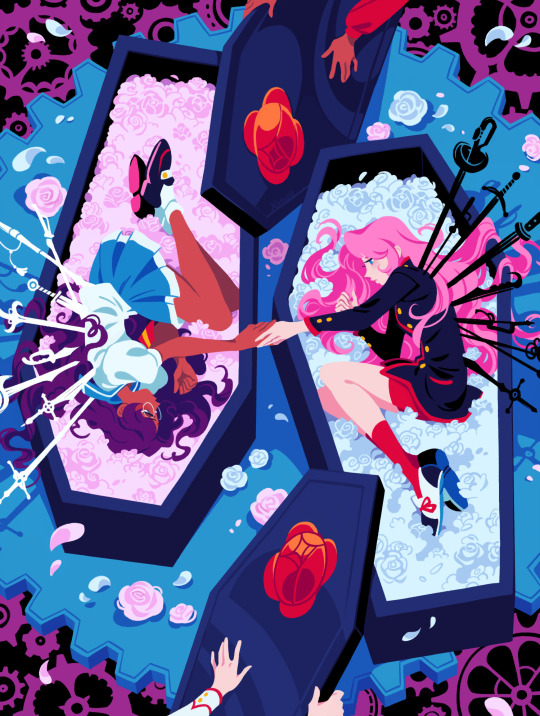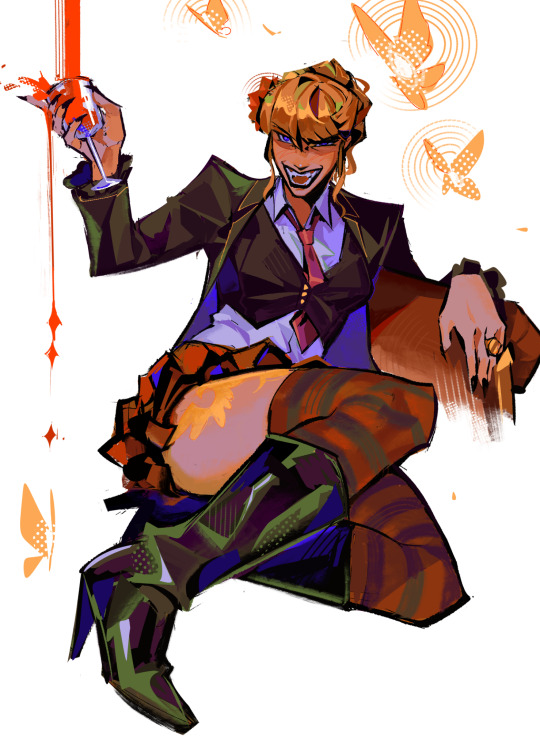Photo

Tasogare Otome x Amnesia 41: The Shadow’s Memories (5)
16 notes
·
View notes
Text
HUGE P4 SPOILERS AHEAD
,
,
,
,
,
,
,
,
,
,
,
,
I can not stand seeing Adachi characterized as anything but an embittered, vengeful and overall contradictory person.
Adachi is a pathetic manchild that, yes, committed the crimes 'because he could', but nonetheless chose to assault Mayumi as revenge for her supposed disloyalty before doing the same to a teenaged girl for practically no reason except (you guessed it!) spite.
Adachi: "I was just trying to punish the stupid bitch a little for betraying me."
Adachi: "I was supposed to be the best of the best, and instead they stick me in the boonies..."
Adachi's hatred of reality largely stems from feelings of being looked down upon and used by a society that didn't reward him for the merits he feels he worked so hard for, and stripping his character of these truths is beyond counterintuitive.
It's interesting that people can play through almost an entire game about searching for truth beyond what's superficial without realizing that Adachi saying "I did everything to have fun xD!!" can ABSOLUTELY be a fib. Adachi is narratively depicted as someone that devolved into a lunatic on a power trip as well; his arcana switches from the jester to the hunger due to certain in-game choices, with the former tarot symbolizing spontaneity or faux facetiousness and the latter symbolizing a lust for power (which, in my opinion, represents Adachi confronting why he actually murdered the two women rather than pretending it was just for funsies).
TL;DR: it's fine to sympathize with/like adachi but please don't believe his act of being a goofy little guy that just wants to have fun lololol
17 notes
·
View notes
Text

[Utena] a single perpetual motion machine
18K notes
·
View notes
Text
My favorite ending of Persona 4 is the bad ending.
I believe nothing encapsulates the core narrative of the game more than the player —blissfully unaware— closing the game after tossing Namatame into the TV world and receiving nearly the same ending cutscene as those who achieved the good ending.
It absolutely nails themes of deception, media and rumors being transient stimuli that ultimately fail to provoke understanding—that life goes on for truthseekers just as it does for those who choose to remain ignorant, with the primary consequence being that your intellectual laziness inevitably endangers others.
The bad ending isn't bad because all your friends immediately die and the world ends—it's bad because you depart from the story without uncovering the truth behind what happened in Inaba, and consequently, you remain completely oblivious to the looming peril in Inaba's distant future. Without seeing the patterns of motives behind flashy rumors, benevolent facades, horrible crimes and their scapegoats, you aid and abet the individual truly responsible for those atrocities. The truth is portrayed here as both an end [stopping the real murderer] *and* a means to one [finding the true culprit and preventing her cycle from victimizing more innocent people].
81 notes
·
View notes











